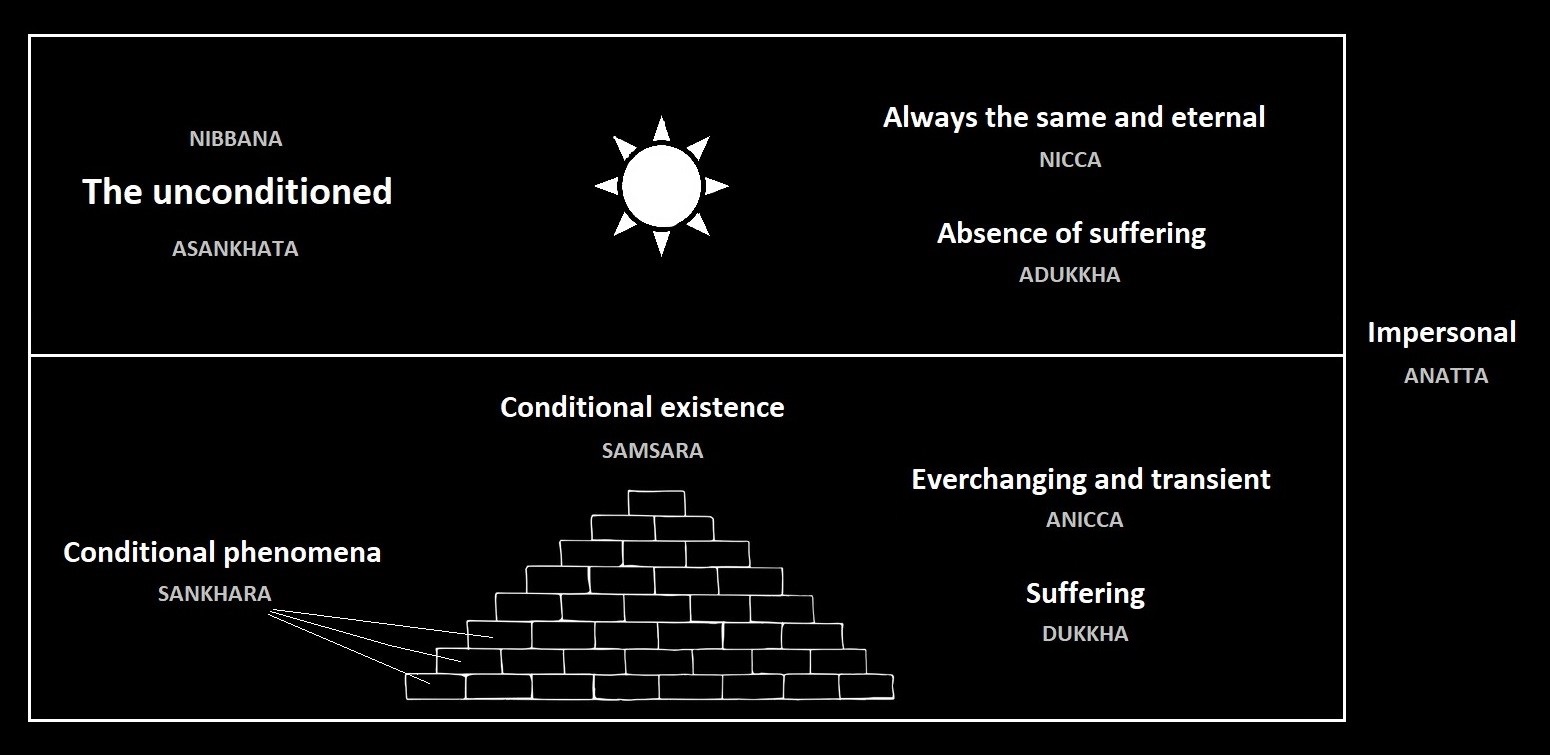As other people said, sam- stands for "togetherness", "sara" stands for "flowing" and "kara" stands for "making".
So the two words are, roughly, "together-flowing" and "together-making".
For me, "Together-flowing" invokes an image of stream infinitely rushing on and yet staying in the same place, like a river. This is a metaphor for the "stream" of the infinitely chaining/forking/joining causes-and-effects that make up the lives of countless generations of sentient beings.
"Together-making" invokes an image of something assembled from multiple parts where these parts condition each other into staying together. That's an abstract term referring to the semi-stable bundles of causes/conditions that come together to produce and sustain (or become and be) every single phenomenon (except Nirvana which is not really an individual phenomenon but I must say it's not a bundle).
In the absolute sense the causal bundles are not good or bad, they just are, but practically speaking some causal bundles are manifestations of bad karma that create experience of suffering or worse, help sustain karmically negative "vicious circles".
So to answer your first question, the two words are not etymologically related except through their common prefix pointing out that both concepts have an element of "togetherness" or co-conditioning.
As to your deeper question, you are correct in your assumption that Samsara is sustained by the effects of the past feeding forward to be the causes of the new, ad infinitum. In my understanding, the samskaras are always cyclic as well, at least to some degree - otherwise they would instantly disband right after coming together.
This principle of causation having a tendency to be self-sustaining is an important part of the Buddhist philosophy both at the everyday level (bad deeds are bad karma, violence begets violence etc) and the level of spiritual practice in pursuit of Enlightenment, since the very Noble Path is a virtuous cycle or spiral.
